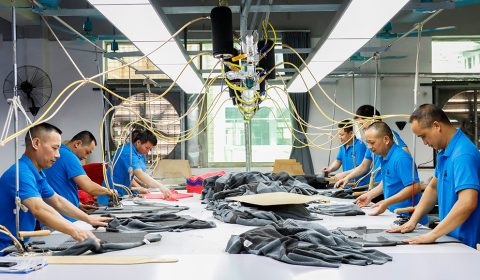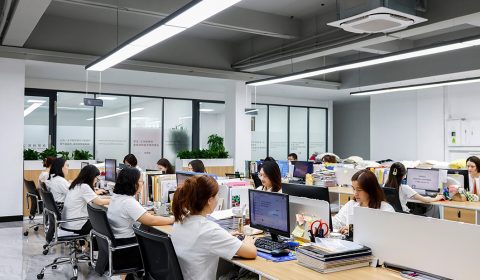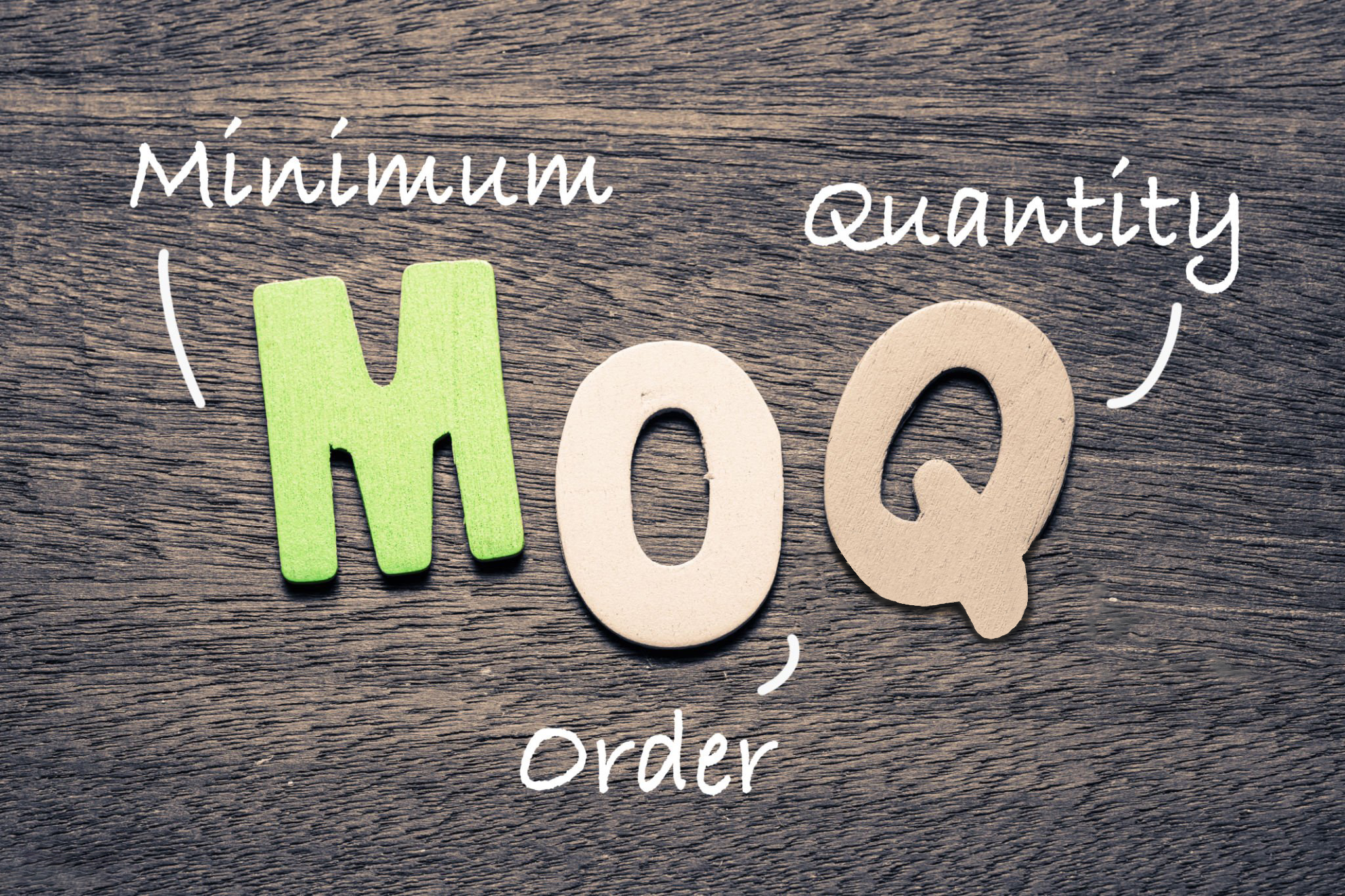As an important branch of the textile industry, knitwear manufacturing plays a key role. Knitwear is widely used in fashion, sportswear, household goods and many other fields, and its lightweight, soft and breathable characteristics make it an indispensable part of people’s lives. From comfortable home wear to fashionable cardigans, from high-performance sports equipment to daily T-shirts, knitwear meets people’s various needs for clothing in its various forms.
With the rapid development of the fashion industry and the continuous pursuit of quality by consumers, choosing the right knitwear manufacturer is of Paramount importance. An experienced and technologically advanced manufacturer can not only guarantee the quality and performance of the product, but also provide professional advice during the production process to help customers achieve their design concepts and market objectives. Therefore, when choosing a manufacturer, it is necessary to carefully examine its background, production capacity, quality control system and other aspects to ensure that the final product meets expectations and can be successful in the market.
Know manufacturer background
Knowing a manufacturer’s company history and size is crucial to building a long-term relationship. First, the company history is a window into the manufacturer’s history, milestones, and core values. Understanding the company’s establishment time, development process and position in the industry can help to evaluate its stability and credibility in the market.
Company size is also a key factor. Companies of different sizes may have different advantages. Large-scale manufacturers may have more resources and production capacity, but small-scale manufacturers may be more flexible and able to provide more personalized services. By knowing the size of the manufacturer, you can better judge whether they can meet your production needs.
Exploring the manufacturer’s past cooperation experience and customer cases can provide you with important reference information. Knowing if they have worked with customers in similar industries and what specific projects they have worked on can help assess their knowledge of the relevant products. By communicating with previous customers, you can get first-hand feedback on the manufacturer’s cooperative attitude, on-time delivery and product quality.
Customer stories are also a way to assess a manufacturer’s expertise. Through case studies, you can see if they have experience dealing with similar challenges and are able to meet your specific needs. It also helps to determine if their technical abilities are in line with your expectations.
The production capacity and technical equipment level of manufacturers are directly related to whether they can deliver high-quality products on time. Knowing their production capabilities, including daily output, line configuration, etc., can help you determine if they can meet your high-volume order needs. At the same time, understanding the advanced degree of technical equipment, such as the degree of automation, numerical control technology, etc., helps to judge whether they are leading in technology and improve production efficiency and product quality.
Product capabilities and professional fields
When talking to the manufacturer, first find out if they have the experience to produce the specific knitting product you need. This includes not only the type of product, but also the corresponding material, process and design requirements. By learning about their manufacturing history in detail, you can gain a clearer understanding of their technical capabilities and level of experience.
The manufacturer’s experience is not just about time accumulation, but also whether they have successfully produced projects with similar requirements to yours. Ask manufacturers to provide samples or examples of similar products to verify that they can meet your quality standards and design requirements. For products with special processes or unique designs, ensure that the manufacturer can provide relevant technical support and innovative solutions.
In addition to product capabilities, it is key to know if the manufacturer has an area of expertise. Different manufacturers may have deeper expertise and skills in specific areas. You can get a better idea of their level of expertise by asking if they specialize in a certain area, such as sportswear, fashion knitwear, etc.
The importance of specialty areas is that manufacturers who specialize in a certain field are often more familiar with trends, technologies, and quality standards in that field. This means they may be able to advise you more professionally, in line with market trends, and ensure that products are produced in line with industry standards. If your knitting product is in a specific field, choosing a manufacturer with relevant expertise will help ensure the successful implementation of the project.
Quality control
Understanding the manufacturer’s quality management system is an important part of ensuring that the product meets the standards. ISO certification is a widely accepted quality management system certification worldwide, indicating that manufacturers have a certain level of quality control. First, verify that the manufacturer has obtained ISO certification to ensure that it has the ability to provide high-quality knitting products.
A detailed understanding of the manufacturer’s quality inspection processes and standards is key to ensuring that the final product meets the requirements. Ask them about the quality control procedures they use, such as raw material inspection, sampling inspection during production, and final inspection of the final product. Understand the key metrics they focus on during the inspection process, such as size, color, fiber strength, etc., to ensure comprehensive product quality.
Obtaining a sample is an important step in verifying the quality of the product prior to production. Ask the manufacturer if they are willing to provide a sample so that you can assess its quality in person. Samples can be used not only to check the appearance and feel of the product, but also to verify its durability and conformity. By comparing with the sample, you can better understand the manufacturer’s manufacturing process and product quality level, ensuring that the final product meets expectations.
When requesting a sample, be sure to specify the features and specifications you want the sample to have to ensure that they are a true reflection of your needs. Also, check if the manufacturer is willing to modify the sample to meet your specific requirements. Through the evaluation of the sample, you can be more confident in choosing the right manufacturer to ensure that the produced knitwear meets the high quality standards.
Production cycle and delivery time
When initially contacting the manufacturer, start by asking about their average production cycle time. This refers to the time it takes from the time an order is confirmed until the product is ready to ship. The length of your manufacturing cycle directly affects your inventory management and market launch plans. If the production cycle is long, you may need to place the order in advance to ensure that the product arrives on time.
The manufacturing cycle usually involves receiving orders, purchasing raw materials, production, quality inspection and packaging. Understanding the timing of these steps and their impact on the total production cycle can help you better plan your production and sales strategy.
In addition to knowing the average lead time, you also need to confirm that the manufacturer’s lead time is in line with your needs. Some manufacturers may have a different approach to expedited orders, while others may take longer to process large orders.
Shipping time must be taken into account when confirming delivery time. If the manufacturer is located abroad, the time taken by sea or air can have a significant impact on the final delivery date. Make sure you have enough buffer time in your plan to prevent potential delays from negatively impacting your business.
While manufacturers may provide reliable production and delivery schedules, in practice, various factors can cause delays. Therefore, it is important to ask if the manufacturer has a plan for dealing with potential delays.




 English
English Deutsch
Deutsch Français
Français Italiano
Italiano Español
Español Русский
Русский Polski
Polski Nederlands
Nederlands Svenska
Svenska

